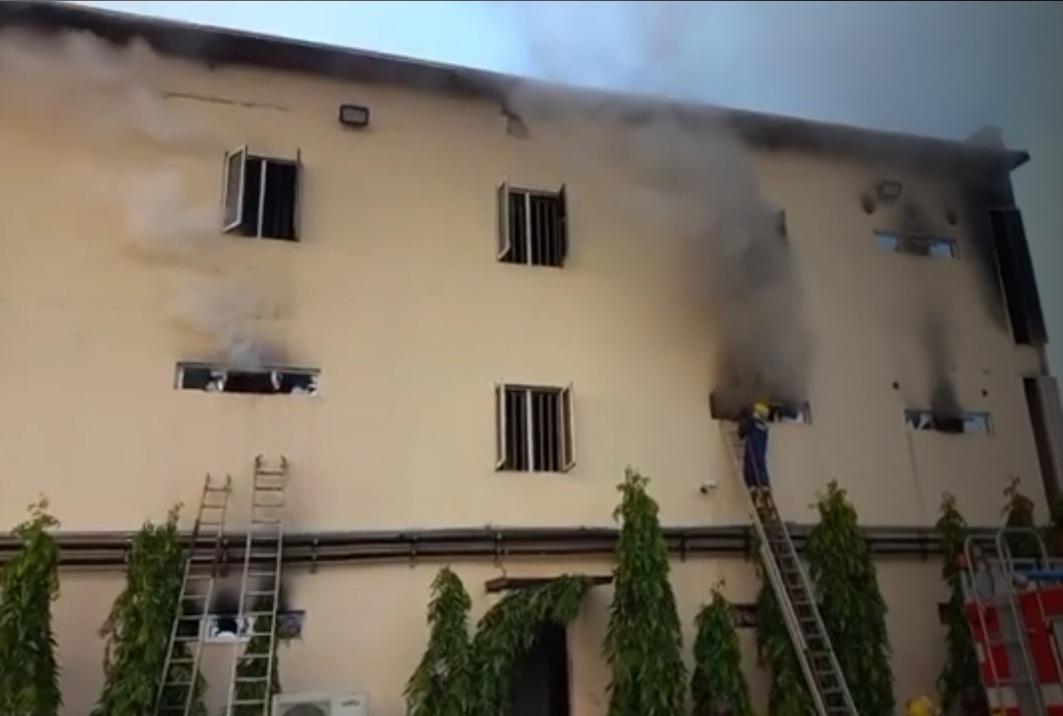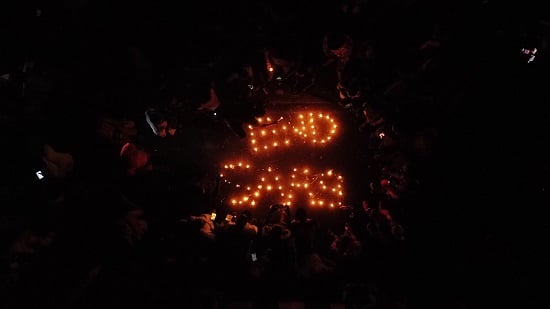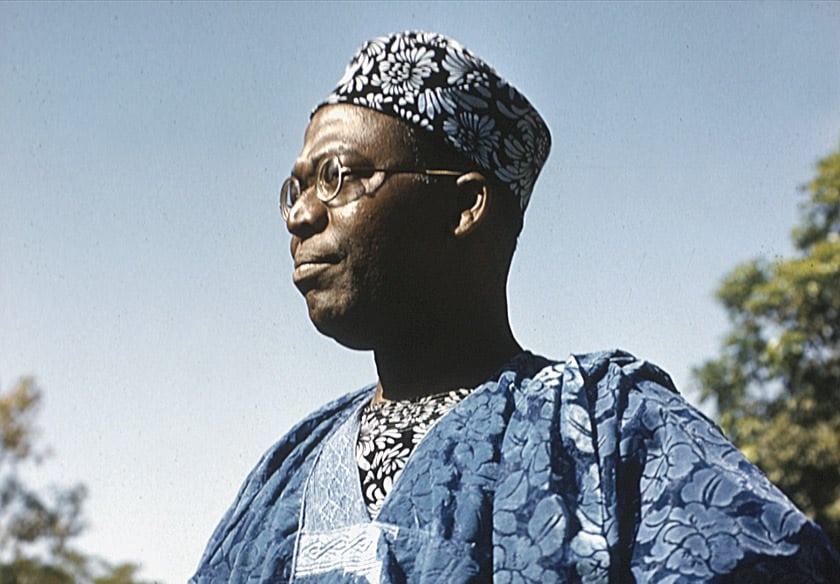Sunday July 18, 2021, began like every other regular sabbath in Abuja the nation’s capital. Christian faithful attended church services in their various worship centres across the city, from Wuse to Wuye, Garki to Gwarimpa, Guzape to Gishiri, Maitama to Mabushi, Asokoro to Apo, Katampe to Kubwa, Kabusa to Karamajiji, Jabi to Jahi. It was typically calm and quiet across the city and the federal capital territory itself, gently stroked by the approach of the rains. Unfortunately, however, the day was going to end in a manner which threw ashes on the tongues of Abuja residents.
Trading activities proceeded typically in *Ebeano Supermarket* a mega mall in Abuja, situated in the Gaduwa/Gudu/Lokongoma part of the city. Since the establishment of the outfit a few years back, it has been spontaneously embraced by residents from across the city, as the indigenous variant of international franchises, strewn across Abuja. Ebeano Supermarket was your one-stop outlet for everything you desired, from the condiments for your soup pot, to home utensils, electrical appliances, assorted drinks, furniture items, books and stationeries, toiletries, medications and so much more. All of these were available in the two-storey edifice, which sits on expansive grounds in that neighbourhood. The prices of items in the superstore, patrons say, were very competitive, so it spared people the stomp and shove of the characteristic marketplace.
There is indeed some emotional attachment to the business entity by many patrons from across the proximal districts and beyond for one specific reason. In a rare display of corporate social responsibility in a cosmopolis like Abuja, the proprietor of Ebeano Supermarket, simply known as “Prince Ebeano” after his trade name, singlehandedly built a four kilometre road, linking Gudu district to the Lokongoma area of the capital city, a project which reportedly cost him about N200 million. Olusegun Adeniyi in his column of July 29, 2021, helps us unveil the man behind the Ebeano mask, a 50 year old entrepreneur whose real name is David Chukwuma Ojei. The road he built has eased the traffic travails of residents of these sections of the city, now populated by burgeoning housing estates, as the city centre gravitates towards new districts. In some kind of gratification of this effort, many residents of adjoining new towns, feel an obligation to patronize Ebeano Supermarket, in salutary acknowledgment of his goodness.
In the evening of Sunday July 18, 2021, however, there was an unexpected outbreak of an inferno, from Ebeano Supermarket. At about 7pm, neighbours and shoppers alike, observed smoke issuing forth from the building. Blasting sounds, like the noise of heavy military armaments, tore through the evening breeze. Shoppers scurried out of the supermarket complex. Vehicle owners among them headed for the car park to evacuate their automobiles. Frantic calls were made to the fire and emergency services, to step in quickly, to mitigate the outbreak. Those who witnessed the development would tell you it was a heart-rending scenario which even the mean-spirited would not wish for his adversary.
Advertisement
Despite the best efforts of the emergency services, all that was achieved, perhaps, was the prevention of the escalation of the conflagration to adjoining businesses and residences. The intensity of the fire incident was such that smoke could still be observed from the ash dust of the thoroughly incinerated edifice, even 48 hours after. All that was left standing within the premises of the enterprise, were charred walls, smoke-darkend, standing out like a sore thumb in the hitherto bustling venture, an unlikely souvenir to entrepreneurial grit, a most depressing and disheartening memorabilia.
Initial conjectures placed the fire incident squarely within the realm of a possible electrical problem in the building. This would usually be the primary suspicion against the backdrop that many buildings and properties, have been lost to cheap and substandard electrical cables and accessories deployed in the mechanics of the construction process. The inexperience of electricians and indeed deliberate cost-cutting mischief of some artisans, have cost house owners great fortunes when things go wrong.
Video footages captured by the close circuit television (CCTV) in the monitoring room of the organisation, subsequently, however, showed a young girl setting off the fire. From images seen in the video, she was in the company of two older ladies, but broke free from their company at some point and headed straight for the section of the supermarket, where combustible wares were stacked. As though previously rehearsed for what she did, the little girl arrived at that department of “inflammables,” picked up a cigarette lighter from the rack and lit up a firecracker next to where domestic gas cylinders were arranged. After inflaming the cracker, she took a few steps away from the scene of crime and had the presence of mind to look back as if to be sure the deed had been done. And even when she had exited that row of merchandise, she kept a keen eye on section she set on fire.
Advertisement
A little over a week later, the child culprit had been found out. It turns out that her name is Joanne Ogar, a nine year old, who was in the company of her mother and auntie on the day of the incident. She could be heard telling her inquisitor, that all she did was to try out an act she had previously watched in some movie. Since that July 27, 2021 viral leakage of preliminary investigation into the matter by the Nigeria Police Force (NPF), not much has been heard about it. The circumspection of the police may be in relation to public criticism of the publicisation of the primary inquest. It could also be a tactic to enable the investigators unearth information related to the issue, away from public view. This is one case that must be diligently pursued and unearthed, to restore our collective confidence in our security and intelligence services.
So much has been said about what the management of Ebeano Supermarket should have done, if not to preempt the sad incident, but at least to mitigate it. Queries have been raised about whether or not the communication room of the outfit housing the CCTV equipment, was manned. Questions have been asked about fire alarms which should have gone off immediately the fire was ignited in the megastore, if they were in place. Inquisitions have been made about fire extinguishers which should be generously appropriated around the investment, to ensure rapid response to threats such as the fire incident. Elsewhere, people have blamed Ebeano Supermarket for stocking inflammables like cooking gas, right within the entrails of the supermarket, when they would have been safer for everyone, outside. But for the incident of Sunday July 18, 2021, however, the placement of gas cylinders have never been an issue in the superstore. I’ve also heard the question about whether the business is properly insured or not.
While all of that is going on, relevant stakeholders need to take more than a passing interest in the restoration of the Ebeano Abuja project and similar entrepreneurial projects, requiring lifelines, at the earliest possible time. The preliminary assessment of the Ebeano Supermarket which was razed down three months ago, vis-a-vis physical structure and merchandise, is said to be about a staggering N5 Billion. This sum is bigger than the annual budgets of many local government areas in Nigeria. It indeed constitutes a percentage of the annual internally generated revenues (IGR), of some states. The Ebeano Supermarket model, began in Lagos as retail shops which blossomed into the thriving contemporary conglomerate.
Adeniyi informs us in his piece of July 29, 2021, that Ojei, who pioneered the enterprise, graduated with a Second Class Upper degree in Accountancy from the University of Nigeria Nsukka (UNN), in 1995. After his National Youth Service Corps (NYSC) in Jigawa State, and unable to secure a banking job, he worked as a security guard in Lagos, on a monthly salary of seven thousand naira. He saved up to set up a barber’s shop, before understudying his uncle, Sunday Egede, who was a trader. Ojei who hails from Delta State, subsequently set up retail outlets in Shomolu, Gbagada and Ikota, all in Lagos. More assured as a trader now, he entered into a partnership with his uncle, Egede who taught him the ropes, on a 50/50 basis. Thus began the odyssey of the Ebeano Supermarket brand.
Advertisement
As at the time of the Abuja conflagration, Ebeano Supermarket employed no less than 50 people. They functioned as salespeople, store keepers security guards, cleaners, and so on, on a sustainable basis. The sheer volume of daily transactions in the business outfit encouraged at least one bank to domicile an automated transaction machine (ATM), within the premises of the enterprise, for ease of business. In an economic milieu with shrinking employment opportunities, regular retrenchments and downsizing, the Ebeano concept is helping to take many potentially idle hands from the streets and guaranteeing them regular livelihoods. It is saving government the added headaches of these potential *almajiris.*
If the Minister of the Federal Capital Territory (FCT) Mohammed Musa Bello, and his colleague in the Ministry of Trade and Investment, Niyi Adebayo have not visited the ruination of vision and perspiration which typify the Ebeano initiative, today is when to drive there to undertake physical assessment of that tragedy. As Nigeria’s President whose office operated from what is known today as “Old Secretariat,” Garki, Abuja, Shehu Usman Shagari detoured on his way back from the office in the early 1980s, fascinated by developments at the site of what was the first privately constructed storey building in Abuja metropolis, in today’s “Area 8” in the city. The ministers need to sit together on the same table with the proprietors of Ebeano Supermarket, to discuss and actualise the rejuvenation of the project. They should assist the enterprise to leverage support from organisations like the Bank of Industry (BOI), with minimum asphyxiating terms and conditions. They should help that initiative recuperate speedily.
The Ebeano incident is also a wakeup call to everyone, all of us and not only business owners. Fire outbreaks have become something of a regular phenomenon. Only recently, sections of the imposing federal secretariat, Abuja, where several government ministries, departments and agencies (MDAs) are located, went up in flames. The second floor of the section occupied by the Ministry of Education was affected in an incident traced to the malfunctioning of an airconditioner. On the same day, a part of the carpark of the secretariat was also engulfed by fire, affecting a number of vehicles. Earlier this year, the Kugbo Furniture Market on the outskirts of Abuja witnessed a fire setback which affected many shops. Very recently too, a section of the offices of *Premium Times* newspapers in Abuja, went up in flames.
Regulatory agencies in the FCTA, notably the Department of Development Control, must be more thorough and perspicacious in vetting building plans and proposals to ensure conformity with security, safety and even evacuation provisions. The department of Fire Services must equally be proactive in the education and enlightenment of residents of the FCT on fire prevention, safety and management tips. A combination of these approaches, should mitigate conflagrations to the barest minimum. A stitch in time as the adage says, saves nine.
Advertisement
With the onset of the dry season and harmattan, fire hazards are accentuated, no thanks to indiscriminate bush burning, notably by unwary rat hunters and by people charged with refuse disposal. Eternal vigilance at times like this is very imperative even in our homes where innocuous appliances could be mortal triggers. As one who has personally experienced a fire scare in the house, emanating from an exposed section of underground cables, I attest to the fact that serviced, up-to-date fire extinguishers in the house are of utmost importance and not a luxury. They are as important in our automobiles, as they are in sections of our homes and offices.
Tunde Olusunle (PhD) is a member of the Nigerian Guild of Editors (NGE).
Advertisement
Views expressed by contributors are strictly personal and not of TheCable.







